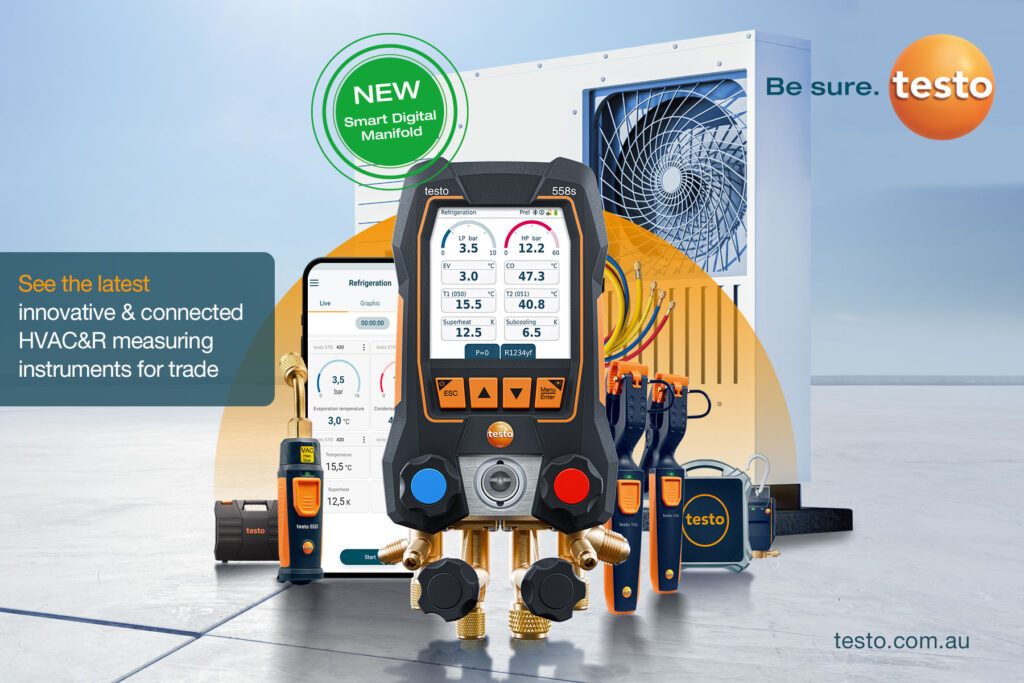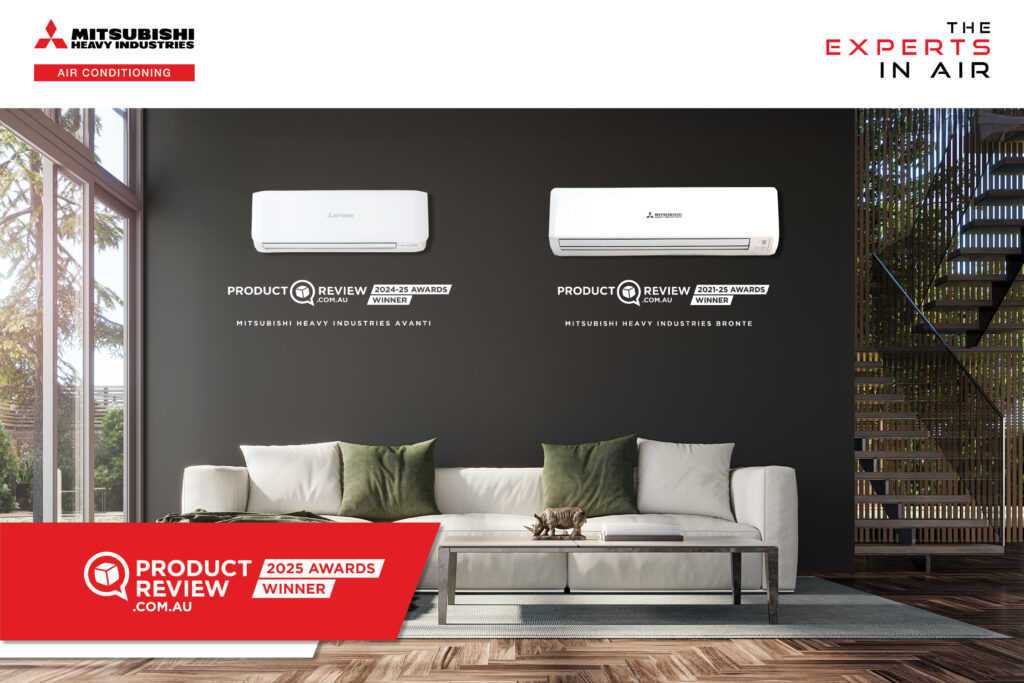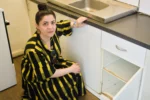Simon says
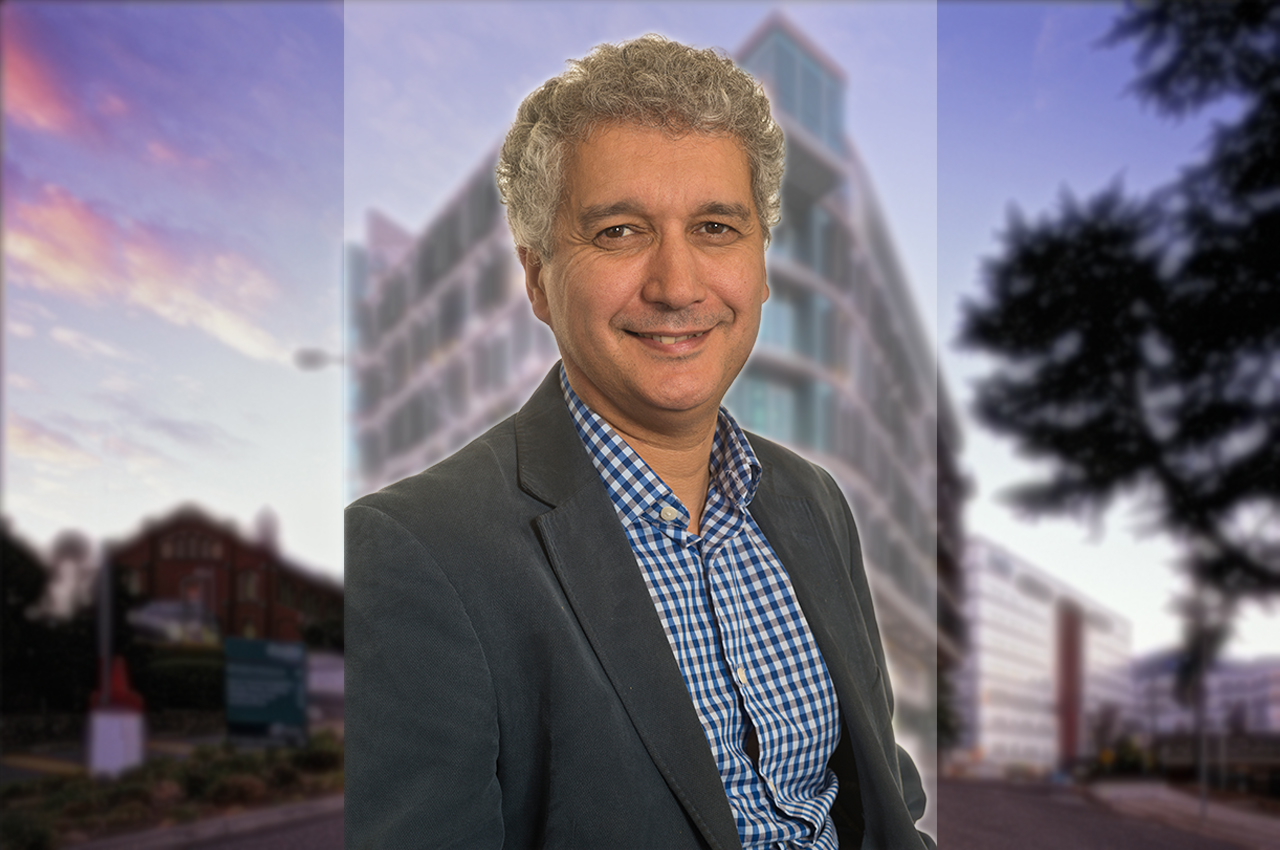
For Simon Witts, M.AIRAH, it’s the complex projects and designs that keep him going. We chat with the national division director, engineering for VA Sciences, based in Melbourne.
When did you first decide you wanted to be an engineer, and how did you get to where you are today?
I always liked engineering, and because I am dyslexic, they wouldn’t let me into medicine or dentistry. I studied engineering at the University of Manchester, and upon graduating got a job with a local engineering consultancy that specialised in hospitals (DSSR).
From there I stayed in building services design – mostly healthcare design – rising through the engineering ranks.
In 2008 I was approached by Lincolne Scott (now WSP) to come over to Oz and help design the Olivia Newton John Cancer and Wellness Centre.
How would you characterise your approach to work? What are the fundamentals to your philosophy and process?
I know it is a cliché, but the KISS principle (“Keep it simple, stupid”) is fundamental to what we do. If something takes half an hour to explain, it’s probably the wrong solution. The other fundamental is understanding the equipment we are using. I’m not a fan of “black boxes”. If the supplier won’t tell us what’s in the box, it is unlikely to be part of my design.
Do you have a checklist you always follow at the start of a project?
Yes and no. It sort of depends on the project. A checklist by default assumes you know where the design is going and therefore has set steps. I’ve been in the industry long enough to see mistakes made because something wasn’t on a checklist!
Do you still work on projects, and if not, do you miss this type of work?
I do, and have made a deliberate choice to stay hands–on in designs and to continue learning new techniques – for example, CFD software and the like. I don’t get involved in the day-to-day production of drawings and specifications anymore, and I don’t miss that. I concentrate on the front end of jobs, which maximises the effectiveness of my input and skill set.
Are you open to new ideas, or are the old ways the best ways? Do you like to collaborate?
Absolutely open to new ideas, and collaboration can lead to some great outcomes – just the different thought processes that people have and those left–field questions that can take a design to where it needed to go. When did you last have a great idea while you were sitting at your desk staring at the computer screen?
What are your favourite projects you have worked on and why?
I’ve been lucky enough to work on some great projects and been at the heart of the design on the Olivia Newton John Cancer and Wellness Centre, the New Royal Adelaide Hospital, the Victorian Comprehensive Cancer Centre, re-writing the Victorian Healthcare Engineering Guidelines, and we have done some awesome work in the hotel quarantine and COVID space with the Victorian state government*. The complex designs are the ones that keep me going. I couldn’t do cookie-cutter projects.
But having said all that the favourite project is always the one I’m currently working on and the next one after that.
What do you enjoy about your job?
I enjoy engineering, the creative process and especially in healthcare the work we do in bringing those buildings to life.
Whom do you most admire and why? Do you have a mentor? Do you gain any satisfaction from mentoring others?
I’ve been lucky enough to work with some great services engineers in my career, all of whom have helped shape me into the engineer I am now. But possibly the most significant engineer was the first engineer I worked under in the UK after graduating. His love of the first principles of what we do has stuck with me all my career. And I have tried my best to impart that philosophy to engineers who work with me.
Are there interesting, funny or quirky facts you could share with us about your work and what you do?
How do you identify an extrovert engineer? They look at your shoes as they talk to you.
What advice do you have for emerging engineers who wish to follow in your path?
Don’t get siloed, and if you enjoy the engineering side of projects, always try to keep your hand in, and never stop learning.
Describe yourself
Curiosity.
What’s the most important lesson you’ve learned throughout your working life?
People are very strange things. Understanding the brief and relating that back to the client so they know what you are doing is often overlooked by consultants. Doing a job well for a client will lead to the next job, and the fees then follow.
What’s next for you, and what are your goals for the future?
To keep on learning and pay it forward from here. Our industry is facing a huge challenge with net zero and “all electric” this and that. Understanding the implications of climate change and I suspect the implications of what is happening in Eastern Europe to the world energy supply will shape what we do for years to come. In terms of my own goals, I just enjoy solving problems, and thanks to people there are always problems to solve.
What does AIRAH membership mean to you?
Good technical resource, and interconnectivity across what can be a very disconnected industry.
If I wasn’t an engineer, I’d be a …
Pilot
Do you have hobbies or diversions?
Music
My most valued possession is …
My guitars
Tell us something about yourself others might not know
I have a bravery award for helping save a man’s life after a factory explosion.
In five years I’d like to be …
A better guitarist.
*Some of the projects and initiatives Mr Witts is referring to in this list were completed while he was in the service of WSP (previously Lincolne Scott) or LCI Consultants.
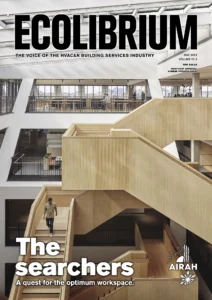
This article appears in Ecolibrium’s May 2023 edition
View the archive of previous editions
Latest edition
See everything from the latest edition of Ecolibrium, AIRAH’s official journal.
